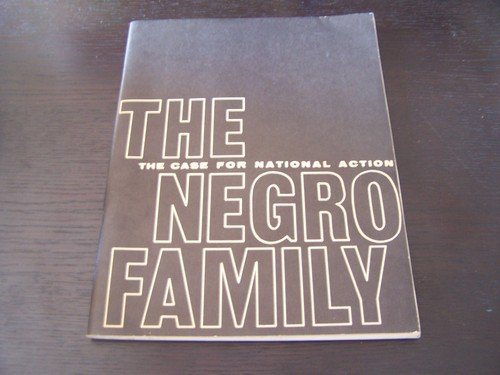
Half a century after being convicted without trial of racism and sexism for calling attention to the deterioration of African-American families, Daniel Patrick Moynihan now stands accused of what may prove to be an equally unforgivable sin: bad social science.
Such is the charge Daniel Geary levels in a recent essay at In These Times, in which he laments the supposedly "uncritical celebration" of the Moynihan Report's 50th anniversary this year, preferring instead that the landmark document be allowed to "enjoy a long-delayed natural death."
The reason, Geary says, is not simply his allegation that the Report was empirically wrong, but also that it was a "Frankenstein's monster" coopted by the right and that its diagnosis of a "tangle of pathology" undermined Moynihan's liberal aspirations by implying that government solutions were unworkable or unwise.
That conservatives invoke the Report seems, of itself, to scandalize Geary. He appears to use the label as a self-evident epithet. It was not to Moynihan, a lifelong New Dealer whose unique liberalism I have called Burkean and whose supple mind nonetheless stretched to accommodate interest in a diversity of ideas, including conservative ones.
The utility of the Frankenstein analogy is unclear. One lesson of that book is that the scientist dabbled in that which humans dare not touch: He was not supposed to create the monster, and he paid a fearful price.
This is indeed something like what happened to Moynihan. The fact that, as Geary correctly notes, a handful of civil rights leaders quietly endorsed the Report in 1965 does not change the flatly undeniable fact of its author's years-long vilification. But is the moral of the story the same? Is the suggestion that Moynihan should not have raised the issue lest ill uses be made of his concerns?
Perhaps: "This is not a monster," Geary warns, "that liberals can control. Highlighting family structure is just as likely to rationalize inequality as it is to dramatize it." More on this presently, but for the moment, it may be worth noting the impression one could draw: a characterization of social science--and history?--not as academic disciplines devoted to the pursuit of truth but rather as tactics in political combat. The suggestion is to avoid highlighting family structure because of what doing so will rationalize: to eschew creation of the "monster" lest one side in the debate be unable to control it.
Indeed, Geary writes, "[t]he very fact that [the Report] appeals to both conservatives and liberals suggests its ideological promiscuity." Might the Report's appeal to multiple audiences not suggest something else: its author's intellectual complexity?
In this spirit, Geary is not entirely uncharitable. "We don't," he writes, "have to mischaracterize Moynihan as a racist or as a proponent of draconian welfare reform to see the problems with his analysis." Indeed, not only is Geary correct to confront these misimpressions, their opposites are demonstrable, the evidence for which includes Moynihan's lifelong commitment to civil rights and his lonely battle against draconian welfare reform in 1995 and 1996.
Geary--who does, to his credit, acknowledge Moynihan's New Deal liberalism, unlike many left-leaning critics who pillory the late New York Senator on false charges of latent neoconservatism--argues that Moynihan inadvertently undermined such causes by identifying the family, rather than oppression or systemic inequity, as the "master problem" of racial inequality.
Yet for Moynihan--whose concluding chapter, like his subtitle, was entitled "The Case for National Action"--identifying the problem was the impetus for, not a means of avoiding, a wide-ranging national policy that he believed would strengthen the family. Moynihan began with the hypothesis--he acknowledged it as such--that economic stability would help enhance family stability.
He consequently proposed a guaranteed income based on family size, the boldest program of redistribution and relief since Social Security--arguably greater than Social Security itself. It was squeezed to its death from the left, which felt it was too modest, and the right, which claimed it was too generous. Eugene McCarthy did as much to kill it as anyone.
Moreover, the characterization of Moynihan as believing the family, rather than systemic oppression, was the "master problem" picks up the causal chain several links in. The Moynihan Report emphatically attributes the deterioration of the family to centuries of oppression and inequity, from slavery to Jim Crow to the slums of the northern cities. By describing family as the "master problem," Moynihan simply meant it presented, at that moment, the greatest threat and the most powerful lever for change.
With this much, it is fair to disagree. To be sure, the evidence presented for this position--such as a Council on Contemporary Families symposium that purports to debunk the Report while barely pausing to quote it--ignores the vast range of work, such as that of William Julius Wilson, on the other side. Of course, the evidence is mixed. Not every prediction Moynihan made panned out. It would be extraordinary if every one had.
But perhaps a step back from the rigid empiricism would help clarify such questions. Common sense might ask: Of those currently excoriating Moynihan, how many would deliberately form a single-parent family under conditions of economic duress? How many, if given a magic Congressional wand, would wave it to push a guaranteed income through Capitol Hill today?
The answers, one suspects, are few in the first case and many in the second. Perhaps, then, liberalism owes Moynihan a greater debt--and more regrets--than it realizes, in which case a reprieve for the Moynihan Report might be justified too.
